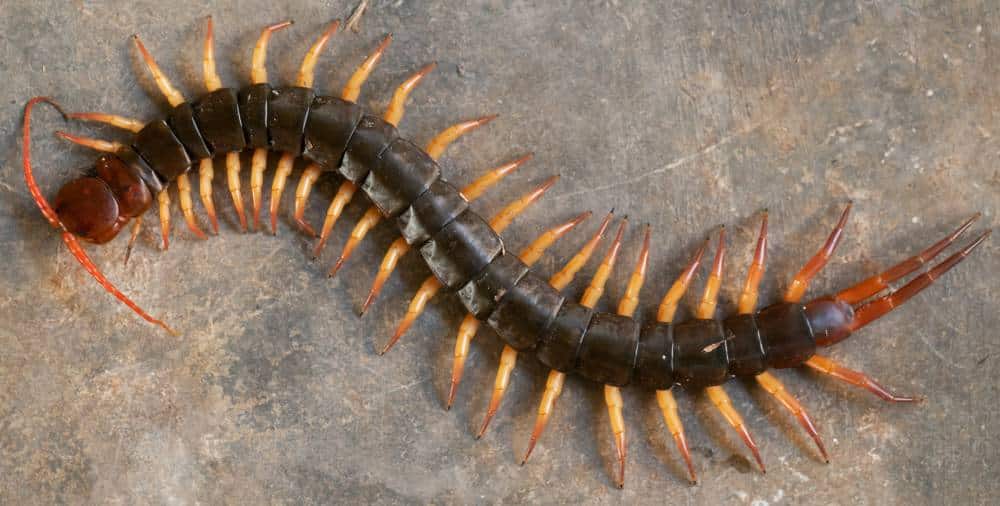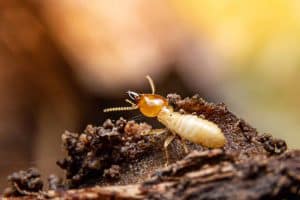Arizona may not be among the worst states in the US for centipede infestations, but it is still a problem to watch out for, especially because some centipedes can have painful stings or bites to humans and pets (unlike other pests, such as termites or crickets). Urban Dest Pest Control has handled its fair share of centipede eradication, and we know they can be quite the handful.
Centipedes love wet, cool, and dark (because they are nocturnal and sensitive to sunlight) areas. So, residents in states like Washington and Oregon frequently find themselves having a centipede problem. Yet, Arizona is no stranger to pests, and centipedes can easily find habitats that suit their needs in The Grand Canyon State. That’s why it’s smart to know and be on the lookout for common types of centipedes in your area.
Giant Desert Centipedes
Just when you think centipedes can’t get any creepier or scarier, there's a species called the giant desert centipede, and it’s one of the more common centipedes in Arizona. These centipedes range anywhere from 6 to 8 inches in length, and have orange-colored bodies with yellow legs. They feed on insects and—frighteningly enough—small animals. Because of their large size, giant desert centipedes can subdue and eat rodents, snakes, and toads. Giant desert centipedes can also be harmful.
Their stings can cause more pain than you’d expect, which is another reason to leave this treatment to the professionals. Additionally, these centipedes can be difficult to find since they often don’t roam in the open. They prefer to stay hidden, in the dark, and they likely don’t stumble upon the inside of a house. But checking common areas of infestation (at your own risk) for one or a few centipedes is likely an indication more are nearby.
House Centipedes
When compared to the giant desert centipede, the house centipede is tiny. Its body is between 1 or 1 and a half inches and has a yellow color with darker stripes. Thus, the house centipede doesn’t have as much problem to homeowners compared to larger, more harmful centipedes. People frequently jump for a second when they see one but then immediately kill it themselves, which isn’t a bad protocol.
However, interestingly enough, the house centipede can be beneficial to residents since it eats other insects in the home, including spiders or cockroaches (but, of course, Urban Desert Pest Control can professionally take care of those pests for you, too). Like other centipedes, house centipedes love moist, cool places, whether outdoors or indoors.
They live outside under rocks, in soil, or piles of organic material in a yard. They’ll typically migrate inside when the soil becomes too wet and cold, such as when it rains, or a garden is watered. A quick key to prevention is ensuring that the foundation next to frequently-watered soil or ground is properly sealed without cracks.
Common Desert Centipedes
The last most common type of centipede in Arizona bears the name well: the common desert centipede. This is a centipede you typically imagine (and likely see often):
- Between 4 and 5 inches in length.
- Brown or tan color with dark stripes on each body segment.
- More legs than you care to stop and count (around 40 legs, if you’re curious).
The typical desert centipede eats primarily insects and whatever small animal it can get its legs and mouth on, including rodents and snakes. They have a painful bite on humans and can sometimes become aggressive, but, like all centipedes, they aren’t poisonous. Additionally, the typical desert centipede can be found under rocks or other dark, covered areas.
FInal Thoughts
It’s common for homeowners to find centipedes in dark, humid, or moist areas, including yards cluttered with leaves and weeds in piles, soil along a house’s foundation, and sometimes even basements. To proactively prevent centipedes, it’s best to remove accumulations of organic material in your yard, use gravel instead of mulch as it absorbs more moisture, and seal the perimeter—particularly areas that get wet—around your home’s foundation.
If mishandled or not eradicated immediately, centipedes can be evasive, frustrating, and even painful. They aren’t something you want to tackle on your own, and luckily you don’t have to. The caring, experienced technicians at Urban Desert Pest Control are happy to help protect your home. We’ll even provide a free inspection to scout out for centipedes or any other pests












